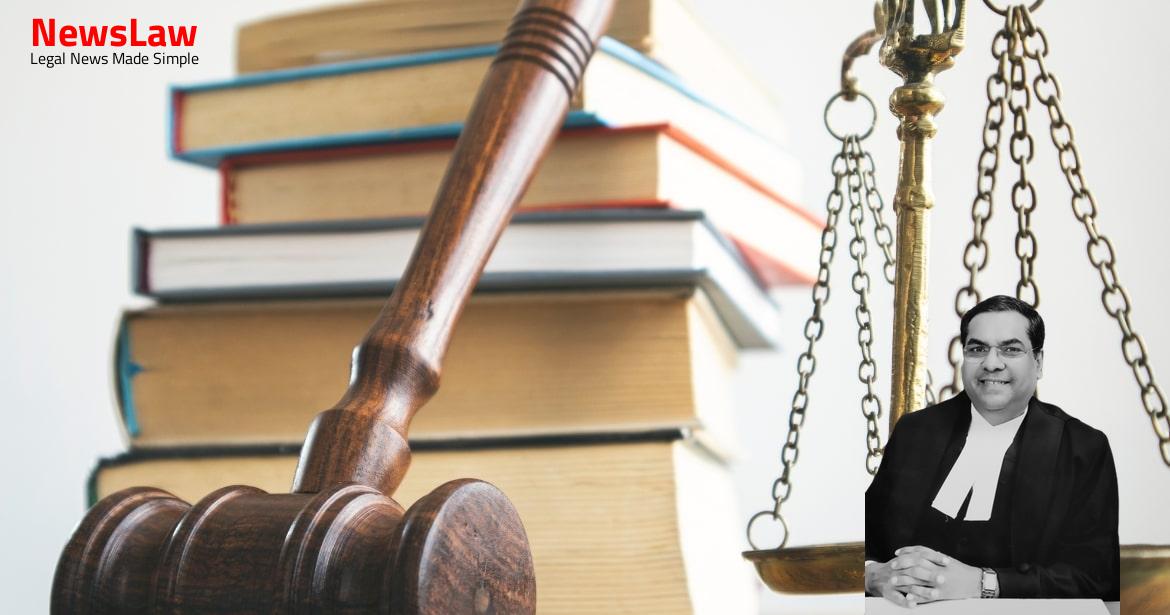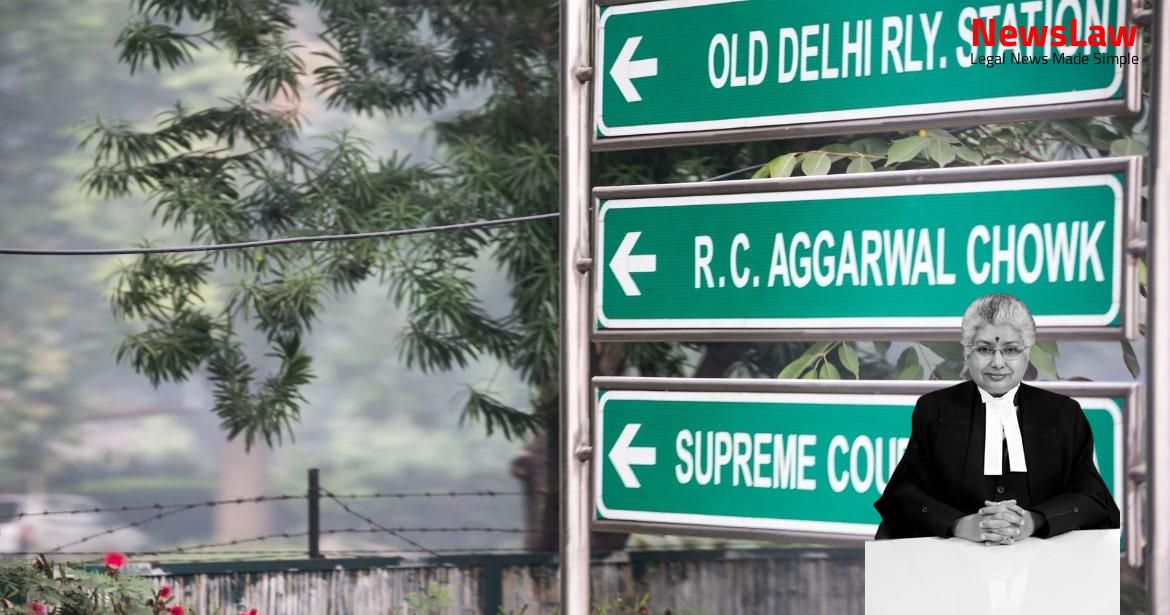In a significant legal ruling by the Supreme Court of India, a decree for the dissolution of marriage has been granted following a prolonged legal battle. The case revolves around the breakdown of the marriage between the parties, with the Court considering grounds of desertion and cruelty. This judgement marks a crucial decision in the legal landscape pertaining to matrimonial disputes. Read on to delve into the details of this impactful ruling.
Facts
- The appellant filed a petition under Section 9 of the Hindu Marriage Act in 2006 for restitution of conjugal rights.
- The petition was decreed on 15 May 2013.
- Following non-compliance by the respondent, a divorce petition was filed on grounds of cruelty and desertion.
- The Family Court granted the divorce on 1 August 2016.
- The High Court of Punjab and Haryana confirmed the decree for restitution of conjugal rights.
- The matrimonial dispute involved multiple litigations and mediation attempts.
- The couple has not been able to settle their dispute despite continuous separation since 2008.
- Trial Court directed the appellant to pay maintenance of Rs.3500/- and Rs.4000/- per month to the children.
- Decree of divorce was passed based on grounds of cruelty and desertion.
- Appellant relied on decree for conjugal rights restoration against the respondent in the divorce petition.
- High Court confirmed the decree of divorce on 19 February 2015.
- High Court later set aside the divorce decree due to appellant’s continuous neglect as a husband.
- Civil Court passed a decree for restitution of conjugal rights against the respondent on 15th May 2013.
- Courts accepted appellant’s case of continuous desertion starting from December 2006.
- Divorce petition filed by the appellant was decreed on 1 August 2016 after efforts to reconcile were unsuccessful.
- High Court confirmed the decree for restitution of conjugal rights.
Also Read: Judgment on Interim Stay of Bail Orders: The Case of Liberty vs. Judicial Discretion
Arguments
- Shri Sukumar Pattjoshi, learned senior advocate for the appellant, argued that since the respondent did not abide by the decree for restitution of conjugal rights, a decree for desertion should follow.
- Shri Sharma, learned counsel for the respondent, contended that the appellant failed to prove the grounds for divorce as per the evidence on record.
- Efforts by the Court to settle the matter were unsuccessful. However, the appellant’s senior counsel mentioned that the offer of Rs. 30 lakhs as maintenance to the respondent is still open if a divorce decree is agreed upon.
- The parties have been living separately since 2008.
- The appellant’s counsel argued that the consistent denial by the respondent to resume the matrimonial relationship caused mental cruelty to the appellant, justifying the decree of divorce.
- He urged that the High Court’s findings, based on the evidence, should not be disturbed.
Also Read: Zaveri & Co. Pvt. Ltd. vs. ACIL: Legal Precedent on Guarantor Liability
Analysis
- The appellant did not resume co-habitation after 15 May 2013 until the date of filing for divorce.
- No event occurred after the decree for restitution of conjugal rights that prevented the appellant from reuniting.
- Desertion by the appellant persisted from 2008 until the divorce petition was filed in 2013 without any reasonable cause.
- A decree for divorce on the ground of desertion under Section 13(1)(ib) should have been granted.
- No effort was made by the appellant to resume cohabitation after the decree for restitution of conjugal rights was confirmed.
- Between the passing of the divorce decree in August 2016 and the setting aside of the decree in October 2019, no attempts were made by the appellant to reconcile.
- The High Court should have confirmed the decree of divorce based on desertion.
- The appellant proposed a lump sum alimony of Rs. 30 lakhs, which is deemed reasonable considering the circumstances of the marriage.
- The evidence presented establishes that the appellant left the company of the petitioner without cause, neglected, and deserted the petitioner.
- The petitioner expressed love and affection towards the appellant and is willing to reconcile.
- The complete breakdown of the marriage for over 16 years supports the decision for divorce.
- Trial Court passed a decree of restitution of conjugal rights on 15 May 2013
- Concluded finding by Trial Court that the respondent deserted the appellant without sufficient cause
- Section 13(1) and 13(1A) of the HM Act provides grounds for divorce including desertion
- Explanation of ‘desertion’ in the Act provided
- Either party to the marriage can present a petition for divorce if there has been no resumption of cohabitation for one year or more after decree of judicial separation
- Either party can also seek divorce if there has been no restitution of conjugal rights for one year or more after decree of restitution of conjugal rights
Also Read: The Disputed Quarrel: Legal Analysis of the Case Involving Muthu and Kesavan
Decision
- The High Court’s interference with the decree for divorce on the ground of desertion is set aside, allowing the divorce to be granted under Section 13(1)(ib) of the HM Act.
- The marriage between the appellant and respondent, solemnized on 25th March 1999, is dissolved by a decree of divorce.
- Bank account details and a cancelled cheque of the respondent must be provided to the appellant’s advocate within three weeks.
- Decree of divorce will become effective upon the payment or deposit of Rs. 30 lakhs with the Supreme Court; the appellant should directly transfer the amount to the respondent’s account.
- Failure to provide bank account details by the respondent allows the appellant to deposit the amount with the Court within three months.
- The payment of Rs. 30 lakhs is in full settlement of the respondent’s maintenance claim.
- Decree of divorce will be drawn by the Registry upon proof of payment or deposit of Rs. 30 lakhs.
- Appellant must file an affidavit with the Court immediately after transferring Rs. 30 lakhs to the respondent, providing proof of payment.
Case Title: X Vs. Y (2024 INSC 476)
Case Number: C.A. No.-007210-007210 – 2024



